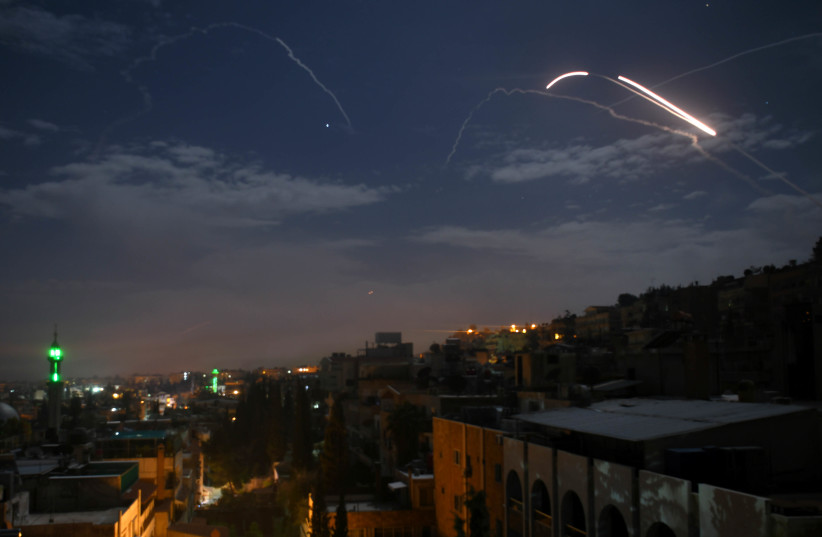The last alleged Israeli airstrike reported in Syria was on Feb. 28, with strikes targeting Iranian targets near Damascus.

Syrian air defenses responded to an alleged Israeli airstrike near Damascus on Tuesday night, after a number of cargo flights between Iran and Syria were reported earlier in the day, according to Syrian media.
A Syrian military source claimed that the alleged Israeli strike targeted sites near Damascus and that most of the incoming missiles were intercepted and only material damage was caused, according to SANA.
من تصدي دفاعاتنا الجوية للعد.وان الإسر.ائيلي pic.twitter.com/bSYzhY0fLQ
— سانا عاجل (@SanaAjel) March 16, 2021
The Syrian Capital Voice site reported that the strikes targeted a weapons shipment that arrived at the Damascus International Airport earlier in the day. Explosions were reported after the strikes as well, according to the news source, which stated that they were likely caused by stored ammunition exploding.
The news source added that the 1st Division of the Syrian military in Al-Kiswah also went on alert after the airstrikes.
Independent flight tracking sites reported earlier on Tuesday that a number of Iranian and Syrian flights from Qeshm Air, Mahan Air and the Syrian Air Force, which have all reportedly been used to smuggle Iranian weapons to Syria and Lebanon, traveled between Damascus and Tehran today.
The last alleged Israeli airstrike reported in Syria was on Feb. 28, with strikes targeting Iranian targets near Damascus.
The strikes in February came just days after an Israeli-owned commercial vessel was attacked by mines in the Gulf of Oman. While Israeli media reported that the strikes were an Israeli response to the attack on the ship, no official government or military statement was made on the matter. In the past, the IDF has often confirmed when it responded to specific attacks.
The strikes on Tuesday come as Iran places blame on Israel for a series of alleged attacks against Iranian vessels they claim occurred from 2019 until recent weeks.
The strikes are the eighth since January, with strikes attributed to Israel reported in eastern, southern and Western Syria in January and February.
Israel has struck a wider range of targets than usual since the start of the year, including a major strike on Iranian-linked strongholds further east near the Iraqi border.
Israeli Defense Minister Benny Gantz in February said Israel was taking action “almost weekly” to prevent Iranian entrenchment in Syria.
Tensions remain high in the region in the aftermath of the assassination of Iranian nuclear scientist Mohsen Fakhrizadeh just east of Tehran, which Iran blames on Israel, and the one-year anniversary of the US assassination of former IRGC Quds Force commander Qassem Soleimani in January. Israel’s northern border remains tense as well due to continued threats by the Lebanese Hezbollah terrorist organization to carry out a revenge attack against Israel in response to the death of a Hezbollah militant in Damascus in July in an airstrike blamed on Israel.
Concerns surrounding the Biden administration’s intent to return to the nuclear deal with Iran have also been raised in recent months, with Kochavi stating that he had ordered operational plans to strike Iran’s nuclear program to be ready if necessary.
As reported by The Jerusalem Post
